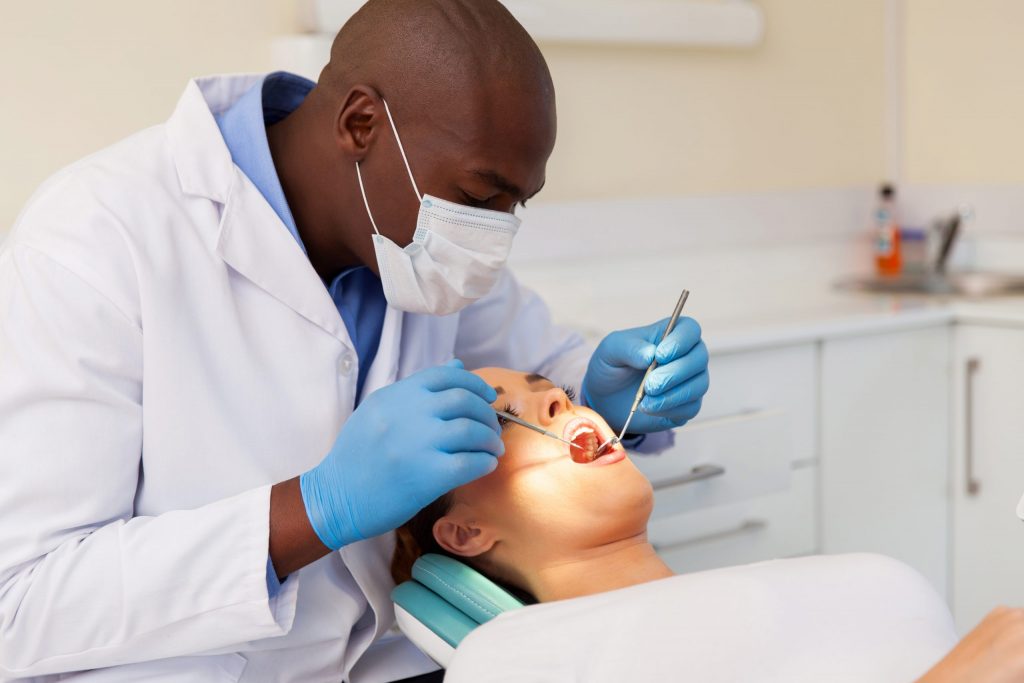Professional Tips for Selecting the Right Dentists Eugene for Your Dental Wellness
Professional Tips for Selecting the Right Dentists Eugene for Your Dental Wellness
Blog Article
An Overview to Typical Oral Problems That Need a Dentist's Treatment
Toothaches, for example, can be symptomatic of serious concerns such as cavities, cracked teeth, or abscesses, each requiring details interventions like dental fillings or origin canals. Influenced knowledge teeth and jaw problems can present substantial pain and issues.
Toothaches
Toothaches are a common dental condition that can range from light pain to extreme discomfort, usually indicating an underlying problem that calls for specialist attention. This discomfort can stem from a range of sources, consisting of tooth decays, cracked or fractured teeth, and dental abscesses. Each of these conditions postures significant dangers if left untreated, potentially causing extra serious problems.
Dental cavities, also known as decays, are triggered by the accumulation of plaque that deteriorates tooth enamel, bring about holes or pits in the affected teeth (dentist eugene oregon). Fractured or fractured teeth, on the various other hand, might result from injury, grinding, or attacking into difficult items. These architectural damages can reveal the sensitive internal layers of the tooth, triggering acute pain and enhancing the danger of infection. Abscesses hurt infections at the root of a tooth or between a tooth and the gum tissue, normally arising from severe degeneration or untreated tooth cavities.
Effective therapy of toothaches entails attending to the origin. This may consist of fillings for tooth cavities, crowns for broken teeth, or root canals and anti-biotics for abscesses. Very early intervention by an oral professional can stop additional wear and tear and ease discomfort, ensuring optimal dental health.
Gum Illness
Gum tissue disease, a widespread yet commonly ignored dental problem, manifests with swelling and infection of the gum tissues and supporting tissues. This condition primarily occurs in two stages: gingivitis and periodontitis. Gingivitis, the milder type, presents with symptoms such as red, inflamed gums that might hemorrhage easily throughout cleaning or flossing. If left untreated, gingivitis can progress to periodontitis, a much more severe kind identified by the devastation of the sustaining bone and connective cells, ultimately bring about tooth loss.
The primary source of periodontal condition is microbial plaque, a sticky, anemic movie that constantly develops on teeth. Poor oral hygiene, smoking, genetic proneness, and certain clinical conditions, such as diabetic issues, can worsen the risk of creating periodontal condition. Regular dental examinations are critical for early detection and management of this condition.
Therapy for periodontal illness ranges from specialist dental cleaning and scaling to advanced procedures like origin planing and periodontal surgery, depending upon the seriousness. Keeping good oral hygiene techniques, including brushing two times daily, flossing, and making use of an antiseptic mouth wash, can significantly lower the threat of gum condition and promote healthier gums.
Tooth Cavities
Dental caries, additionally referred to as oral decays, are a common dental condition defined by the devastation of tooth enamel due to acid-producing germs in the mouth. These bacteria prosper on sugars and starches from food and drinks, creating acids that gradually deteriorate the enamel, causing tooth cavity formation.
Early-stage dental caries might not reveal signs and symptoms, however as they proceed, they can create toothache, sensitivity to warm or cold, noticeable openings or Bonuses pits in the teeth, and discoloration. If left unattended, tooth cavities can penetrate much deeper layers of the tooth, possibly leading to serious discomfort, infection, and even tooth loss.
Avoiding cavities entails a combination of excellent oral health techniques and nutritional behaviors. Normal cleaning with fluoride toothpaste, flossing, and regular oral check-ups are critical. Dental practitioners might likewise recommend additional safety nets, such as fluoride therapies and dental sealers, to secure teeth from decay.
Minor tooth cavities can be resolved with dental fillings, which bring back the tooth's framework. More sophisticated situations might need crowns or also root canal treatment if the degeneration has reached the tooth's pulp.

Impacted Wisdom Teeth
Influenced wisdom teeth are a prevalent dental concern that happens when the 3rd molars, typically described as useful content wisdom teeth, stop working to completely emerge or line up correctly within the mouth. This condition commonly results from inadequate room in the jaw or an unusual development angle of the teeth. Impacted wisdom teeth can bring about a variety of complications, consisting of discomfort, infection, and damages to nearby teeth.
When wisdom teeth become affected, they are frequently partially appeared or remain entirely underneath the gum tissue line. This partial eruption can develop a path for microorganisms to get in the gum tissues, bring about infections that materialize as swelling, pain, and also high temperature. Furthermore, affected knowledge teeth can apply pressure on neighboring teeth, possibly triggering crowding or moving.
A comprehensive dental exam, generally entailing X-rays, is essential for identifying affected knowledge teeth. Treatment frequently involves medical extraction, carried out by a dental surgeon. The procedure intends to ease pain and stop further difficulties, such as cysts or damages to surrounding bone frameworks. Post-operative treatment is important to guarantee proper recovery and lessen the threat of infection. Normal dental examinations are suggested to monitor the condition and keep dental health.
Jaw Disorders
Jaw disorders, collectively referred to as temporomandibular joint (TMJ) conditions, incorporate a series of conditions that impact the jaw joint and surrounding muscles. These conditions can materialize via signs such as discomfort or inflammation in the jaw, trouble eating, a clicking or popping noise when shutting the mouth or opening up, and even persistent migraines. TMJ disorders can occur from numerous aspects, consisting of joint inflammation, jaw injury, or habitual actions like teeth grinding or jaw clenching.
Diagnosis of TMJ problems generally entails a comprehensive assessment by a dental professional, consisting of a physical exam of the jaw, dental X-rays, and sometimes advanced imaging techniques like MRI or CT scans to examine the joint's condition. Non-invasive strategies such as read more physical therapy, dental splints, and medicines intended at decreasing swelling and discomfort are often first-line therapies.
Very early intervention by a dental specialist is critical to avoid the development of TMJ problems and to maintain general oral health. People experiencing consistent jaw discomfort or disorder need to seek timely evaluation and treatment.
Verdict
Toothaches often suggest underlying problems such as dental caries, split teeth, or abscesses, calling for prompt treatment. Influenced knowledge teeth and jaw problems additionally need expert attention to ease pain and prevent additional complications.
Oral dental caries, also known as decays, are created by the accumulation of plaque that erodes tooth enamel, leading to openings or pits in the influenced teeth. Abscesses are agonizing infections at the origin of a tooth or in between the gum and a tooth, normally resulting from serious degeneration or unattended cavities.

In addition, impacted knowledge teeth can exert pressure on bordering teeth, potentially creating crowding or moving.
Report this page